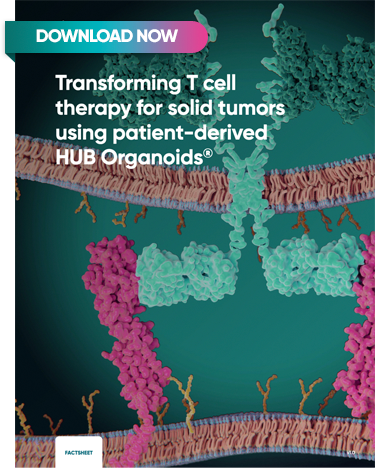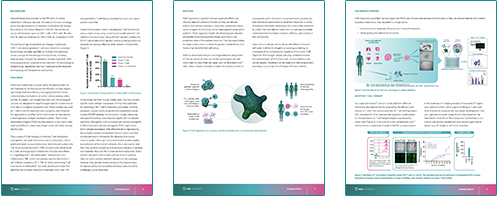FACTSHEET
Transforming T cell therapy for solid tumors using patient-derived HUB Organoids®

T cells play a crucial role in cell therapies aimed at treating hematological malignancies by targeting specific markers. However, this strategy has not been as effective in treating solid tumors due to the lack of tumor-associated antigens (TAAs) that can be selectively targeted without harming normal tissue. The use of preclinical models has been limited because they do not accurately represent TAA expression, impeding progress in developing effective therapies. To address this challenge, patient-derived HUB Organoids have emerged as a promising solution. These organoids preserve both patient heterogeneity and specific TAAs, essential factors for advancing cell therapies for solid tumors. Co-culturing these organoids provides a valuable tool for studying tumor targeting and the immune microenvironment in immunotherapeutic research. Recognizing the increasing demand for patient-derived models in immuno-oncology, HUB has prioritized the development of I-O biobanks. These biobanks encompass protocols for isolating and expanding various cell types, such as tumor cells, fibroblasts, and T cells, enabling the establishment of autologous and non-autologous systems to further progress in the field.
Download this factsheet to discover:
- The significance of PDOs in the development of adoptive T cell therapies for solid tumors
- A comparison of HUB Organoids with existing preclinical models for T cell development
- Scientific insights from two case studies demonstrating the value of organoid-based immune cell co-cultures in evaluating the efficacy and toxicity of CAR T and engineered T cells
Sample pages

